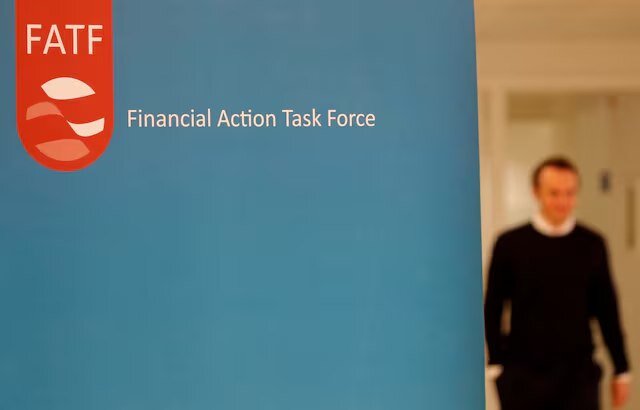FATF's moving goalposts
The financial watchdog snubs Iran's legislative pogress and keeps it on the blacklist, putting to question its impartiality

TEHRAN – The ongoing saga between the Islamic Republic of Iran and the Financial Action Task Force (FATF) took another frustrating turn this week, as the global financial watchdog once again decided to keep Iran on its "high-risk" list. This decision came despite continued efforts by Iran to engage with the FATF process, and amidst opposition from some political factions within the country.
The narrative pushed by the FATF is one of Iranian non-compliance. In a statement published on Friday, the Paris-based watchdog claimed it “acknowledges Iran’s re-engagement with the FATF... and that it aims to address deficiencies in its AML/CFT regime.”
“Iran has failed to address the majority of its action plan since 2016,” it further stated, adding that “Iran will remain on the FATF High Risk Jurisdictions Subject to a Call for Action statement until the full Action Plan has been completed.”
Mere days before the statement, Iranian President Masoud Pezeshkian officially ratified and communicated the law on Iran’s accession to the International Convention for the Suppression of the Financing of Terrorism (CFT) to relevant executive bodies.
In May, Iran’s Expediency Council approved the country’s accession to the Palermo Convention, one of the two key legislative items tied to the FATF standards, alongside the CFT.
These two conventions, the Palermo Convention and CFT, were among the primary legislative requirements Iran had yet to fulfill. Iran ratified them in accordance with its constitution and laws, a move that came despite mounting criticism from conservative factions within the country. These factions argue that the financial watchdog is not a technical body but a political tool wielded by the West, much like the International Atomic Energy Agency (IAEA).
The history
The FATF is an inter-governmental body that is supposed to set international standards for combating money laundering and terrorist financing. In theory, its goal is to protect the global financial system. However, from the perspective of many nations, including Iran, it often functions as a political tool for the West to exert financial pressure on countries they deem non-compliant with their own rules. Critics argue that its decisions are frequently influenced more by Western interests than by purely technical assessments.
Iran was first put on the FATF's "blacklist” in 2007. The "blacklist" is for jurisdictions the FATF deems entirely non-cooperative. Between 2016 and 2020, Iran was placed on the “grey list”, which signifies that a country is committed to addressing its alleged deficiencies but has not yet completed the necessary reforms. The situation escalated again in February 2020 when, citing insufficient progress, the FATF called on its members to apply enhanced due diligence and effective counter-measures against Iran.
When a country is placed on the grey list or the blacklist, international banks and financial institutions become reluctant to process transactions with it. Consequently, even humanitarian trade like medicine and food will be affected, and the nation will find it more difficult to integrate into the global economy. For Iran, however, these challenges would persist even if it were removed from the high-risk list, primarily due to heavy U.S. sanctions, according to Hossein Samsami, an economic expert.
"It has always been obvious that getting de-listed by the FATF will not make much difference regarding the financial pressure Iran is experiencing. Because the pressure will be there as long as the United States continues to sanction us,” the expert explained. "But despite being on the high-risk list and subject to heavy U.S. sanctions, Iran continues to export. Last year, we sold over $100 billion worth of products, and we will continue to do so in the future, regardless of our status on such lists.”
This situation has led many analysts to believe Iran's efforts to resolve its differences with the financial watchdog are made merely in good faith.
Leave a Comment